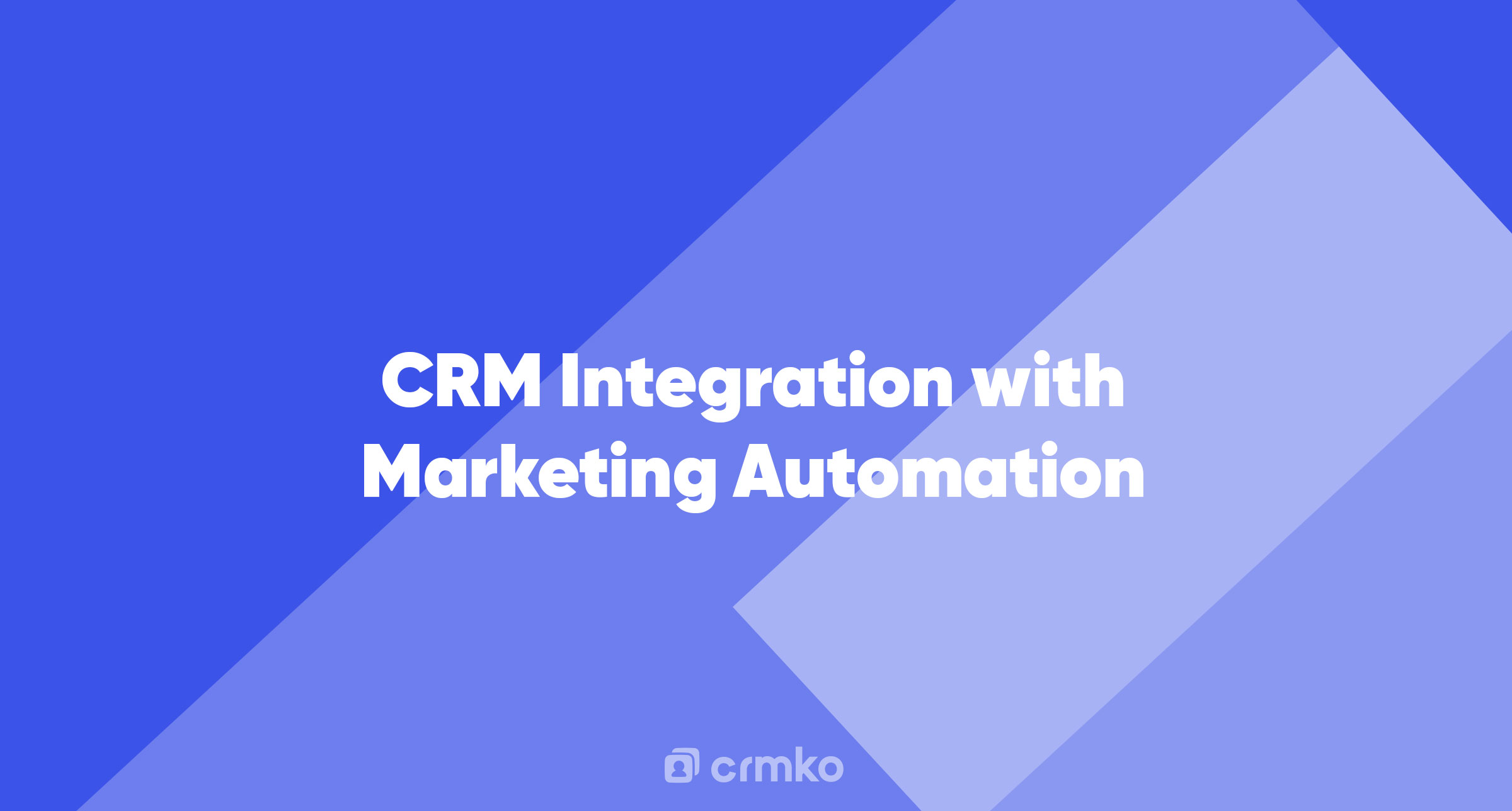In today's fast-paced business environment, the integration of Customer Relationship Management (CRM) and Marketing Automation has become a game-changer for companies aiming to streamline their marketing efforts, nurture customer relationships, and drive revenue growth. This article delves into the powerful synergy of CRM and Marketing Automation and how businesses can harness this integration for improved efficiency and results.
1. Understanding the Synergy
CRM and Marketing Automation serve complementary but distinct functions. CRM focuses on managing customer data, sales pipelines, and customer interactions, while Marketing Automation is designed to automate marketing campaigns, lead nurturing, and customer engagement. By integrating the two, businesses can create a holistic view of their customers, seamlessly move leads through the sales funnel, and personalize marketing efforts with precision.
2. Unified Customer Data
One of the primary benefits of CRM and Marketing Automation integration is the consolidation of customer data. The CRM system stores critical information about leads and customers, including their contact details, purchase history, and engagement history. Marketing Automation systems can leverage this data to tailor marketing campaigns to specific customer segments, ensuring a more personalized and relevant customer experience.
3. Lead Nurturing
Integrating CRM with Marketing Automation streamlines lead nurturing by enabling businesses to create automated workflows based on customer behavior and interactions. For example, when a lead takes a specific action, such as downloading an e-book, the Marketing Automation system can trigger a series of follow-up emails or messages that are customized to guide the lead through the sales funnel.
4. Efficient Sales Handoff
CRM and Marketing Automation integration ensures a smooth handoff of leads from marketing to sales teams. When a lead reaches a certain point in the nurturing process and is deemed "sales-ready," the CRM system can notify the sales team to take action. This process reduces lead leakage and ensures that sales teams focus on highly qualified leads.
5. Personalized Marketing Campaigns
The integration allows for highly personalized marketing campaigns. Marketing Automation tools can pull customer data from the CRM system to deliver tailored content, product recommendations, and promotions. This level of personalization not only increases engagement but also boosts conversion rates.
6. Closed-Loop Reporting
CRM and Marketing Automation integration provides closed-loop reporting, which enables businesses to track the entire customer journey from initial contact to purchase and beyond. This visibility into the sales and marketing process allows for data-driven decision-making and the continuous improvement of marketing strategies.
7. Data Security and Compliance
Integrating CRM and Marketing Automation ensures that customer data remains secure and compliant with data protection regulations. With all data housed in one system, it becomes easier to maintain and enforce data security measures and comply with regulatory requirements.
Conclusion
The integration of CRM and Marketing Automation is no longer a luxury but a necessity for businesses seeking to excel in the modern marketplace. This unified approach enhances customer engagement, streamlines lead nurturing, improves the efficiency of sales teams, and empowers marketing efforts with personalization and data-driven insights. As businesses continue to prioritize data security and compliance, the integration of these two systems ensures that customer data remains protected and compliant. In a world where customer relationships and data-driven marketing are paramount, the seamless synergy of CRM and Marketing Automation has the potential to transform businesses and drive success to new heights.
